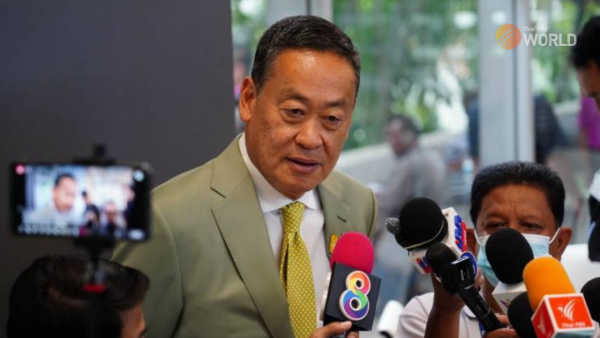No savings, huge debts: More and more Thai seniors struggling to survive

Thailand expresses gratitude and respect for the older generation every year on April 13, National Elderly Day. Yet, every year the number of senior Thais in dire straits, struggling to survive without support or a safety net, rises.
A 2021 survey revealed that half of Thais aged 60 to 69 were still working to support themselves. Most of them were working as farmers, vendors, taxi drivers, delivery staff or doing odd jobs.
“The survey underlines the risk of a poverty crisis among elderly Thais,” said Dr Phusit Prakongsai, executive secretary of the Thailand Gerontology Research and Development Institute (TGRI).
Thailand’s aging society
More than 20% of the Kingdom’s 66.7 million people are currently aged over 60. In Thailand, anybody who crosses the 60 threshold is identified as elderly. Once a citizen reaches 60, they are eligible for monthly state subsidies of 600 baht. The subsidy rises after every decade, with those aged over 90 eligible for payments of 1,000 baht every month.
Though all Thai seniors are eligible for this financial aid, it is hardly enough to cover living expenses. And with inflation now soaring, cash-strapped elderly Thais are in even more trouble.
Many Thais are forced to continue working after retirement, even if they suffer from age-related health problems, because they have no savings. However, job opportunities are limited.
A 2021 survey conducted among Bangkokians aged 60-64 showed that a fifth of respondents continued to work unofficially after reaching retirement age. The survey was conducted by Mahidol University’s Institute for Population and Social Research.
Better system necessary
Assoc Prof Dr Yongyuth Chalamwong, research director for labor development at the Thailand Development Research Institute (TDRI), is concerned that elderly Thais working unofficially may not have any legal protection.
Echoing his opinion was Assoc Prof Dr Kiriya Kulkolkarn, a lecturer at Thammasat University’s Faculty of Economics.
“The government should offer legal protection to elderly workers,” Kiriya said. “Also, we need to think about adapting work situations so they don’t impact senior citizens’ health. And set clear guidelines as well as incentives such as tax benefits, so businesses are not reluctant to hire older workers.”
She said authorities should coordinate with the business and labor sectors to devise effective laws for seniors at work.
Yongyuth said many Thais work all their lives with no hope of retiring because they do not have access to an effective welfare system. Working outside the formal sector, they usually do not have savings. Worse still, they can be burdened with debts of up to 300,000 baht.
“Thailand needs to improve its social welfare. For instance, a fund should be established to offer financial benefits to the elderly via the social security scheme,” he said. “We could also provide some extra support through welfare cards.”
Home alone: The elderly citizens being abandoned as population change grips Thailand
Income guarantee
Phusit, from the Gerontology Institute, said the TGRI is set to release a report on Thailand’s elderly population in June. Included in the report will be recommendations on what the government can do. Among the suggestions is that the government extend the retirement age from 60 to 65 or 70. At present, the older retirement age is only applicable to staff in the justice system.
“We will also encourage the government to provide a monthly subsidy of 3,000 baht to each elderly Thai,” he said.
He said that since most Thais working outside the formal sector do not earn much, they often struggle with living expenses and debts. When they reach old age, they have to continue working hard to repay their debts.
“In the next few decades, the chances of Thai seniors relying on their children or grandchildren will also fall [due to the declining birth rate]. So, it is essential that people understand they need to prepare a nest egg,” Phusit said.
A recent study conducted by two Thammasat economics lecturers found that Thais aged 40-59 suffered fragile finances because they were unable to save.
The study by Dr Theepakorn Jithitikulchai and Asst Prof Dr Duangmanee Laovakul suggested that the government should increase its income in order to boost the state pension scheme. To earn more, the government would have to expand its tax bases and curb pro-rich policies, which will also reduce economic inequality in Thailand, the study said.
The government should make the pension system part of the national agenda and assign a specific agency to take charge of it, the lecturers added.
Their other recommendations include more protection for Thais against poverty, creating more job opportunities for the elderly, and changing laws to help senior citizens lead comfortable lives.
What political parties say
Political parties are promising pensions or larger monthly subsidies for the elderly, in a bid to woo voters ahead of next month’s general election.
The United Thai Nation Party, which is fielding Prime Minister General Prayut Chan-o-cha as one of its two PM candidates, has pledged 1,000-baht monthly payments to all elderly Thais, as well as tax incentives for companies who hire seniors.
The Palang Pracharath Party led by Deputy PM General Prawit Wongsuwan is making even bigger promises. Its campaign pledges to hand 3,000 to 5,000 baht a month to all elderly Thais if the party is voted into power. It also vowed to set up enterprises that will create a million jobs for people of retirement age. And it plans to extend the retirement age from 60 to 63.
The Democrat Party also plans to extend the retirement age, but so far it has not promised any fat monthly subsidies. Instead, it has unveiled a policy that would require Thais to start saving so their retirement years are easier. The party also plans to give 30,000 baht to every club for senior citizens to promote activities that will help maintain their mental and physical health.
Move Forward, meanwhile, plans to raise the monthly subsidy for the elderly to 3,000 baht by 2027. It also promises to provide funding to local administrative bodies to develop infrastructure for elderly care. The party hopes to boost care for seniors to one caregiver for every two bedridden or elderly people.
Thai Sang Thai Party plans to raise monthly allowances for the elderly to 3,000 baht, but this will be targeted initially only at those in dire need.
Academics estimate the government will require more than 430 billion baht per year to fund state payments of 3,000 baht a month for Thailand’s 12 million elderly citizens. If the number of senior citizens rises to 20 million by 2050, the annual budget will rise to more than 700 billion baht.
By Thai PBS World






